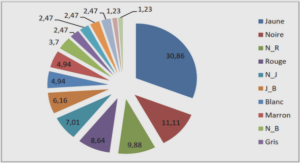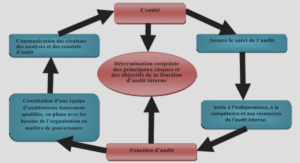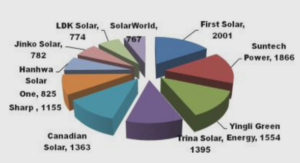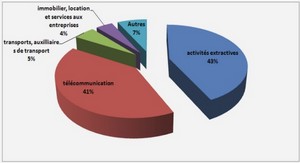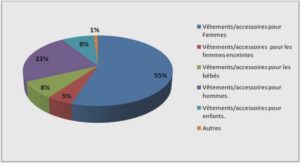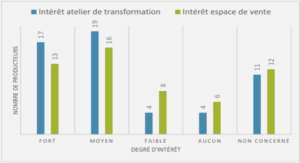In Search of Morals and Economics for Social
Stability in Moll Flanders (1722) and Roxana (1724)
by Daniel Defoe
Sacrifice of morality for economic independence
Morality (from the Latin moralitas « manner, character, proper behavior ») is the differentiation of intentions, decisions, and actions between those that are distinguished as proper and those that are improper. Morality can be a body of standards or principles derived from a code of conduct from a particular philosophy, religion, or culture, or it can derive from a standard that a person believes should be universal. Morality may also be specifically synonymous with « goodness » or « rightness. » Moral philosophy includes moral ontology, or the origin of morals, as well as moral epistemology, or knowledge about morals. Different systems of expressing morality have been proposed, including deontological ethical systems which adhere to a set of established rules, and normative ethical systems which consider the merits of actions themselves. An example of normative ethical philosophy is the Golden Rule, which states that: « One should treat others as one would like others to treat oneself. » Social control and lost of moral in England the eighteenth- century had been the object of numerous studies. Some authors remark that the practice and ideology of law embodied the supreme values. Others focus on the appropriation by the poor of the means of living and forced person to sacrifice their values. In fact in Moll Flanders and Roxana centers around whether the author makes good on the promise he makes in the preface that the story will be morally instructive. Much of the critical debate surrounding Daniel Defoe‘s novel because protagonists have sacrificed their moral in oder to obtain money and satisfy their needs. For instance, Ira Konigsberg writes that ―One of the book‘s contradictions that Defoe never resolves is in the conflicting arguments for necessity and morality‖ (37). It is mean that there is a misunderstanding; for Defoe, necessity is part of morality and vice versa. It is certainly tempting to view that perspective as an indication of irony, but Defoe was not, contrary to popular opinion, an ironic novel writing. In actuality, he was writing a very realistic novel which expressed not only his own, but much of society‘s view that the sixteenth century had seen a tonal shift in morality, moving away from religious values rooted in the Middle Ages toward a value system based on a religious suspicion of indigence and sloth. The moral lesson contained in Moll Flanders is that she is a virtuous example of the new paradigm of the individual that Defoe envisioned as being crucial to maintaining the growth of England that was promised by the emerging economic structure of the 18th century. That Moll Flanders is meant to be seen interpreted as a realistic, moral heroine can be deduced by comparing her economic worldview with that of her creator. That Moll Flanders is meant to be seen interpreted as a realistic, moral heroine can be deduced by comparing her economic worldview with that of her creator. In doing so, it 8 becomes obvious that Defoe was creating a fully realized mouthpiece for his own personal theories on the necessity of economic aspiration as a means of moral salvation. Moll says at one point, ―marriages were here the consequences of politic schemes, for forming interests, carrying on business, and that love had no share or but very little in the matter‖ (46). Women at that moment didn‘t focus on their religion or costum because of their difficult economic life. There were not able to make ends meet that is way they do many kinds of activities such as robbery, prostitution or be a mistress of rich men… So in Moll Flanders and Roxana, Defoe creates an engaging character who personifies almost every socio-economic theory, he expresses in his multitudinous writings, topics of trade and commerce. It seems inconceivable that Defoe would have created a character who so clearly was designed to be a loudspeaker for the economic theories of the world which were not a heroic, admirable, and entirely moral figure. The moral that Defoe provides in those books is not that capitalism and commerce are bad for England, but rather the reverse; that, in fact, the pursuit of upward mobility by the middle class is a moral imperative and, furthermore, that the methods of gaining upward mobility are not limited to the ―virtuous‖. Person who are at middle class don‘t have the right to explain themself life wealthy person, they are used like objet because of capitalism. Theye are also victims of a lack of consideration that is the reason why they try doing their best in oder to escape their bad conditions. The two novels however exemplify what Raymond Williams calls ‗ forced labyrinths and alleys of the poor‘ founded by speculative builders exploiting the overcrowded. As an emblem for Defoe‘s novels, they more appropriately evoke the twisted course laid out for the protagonist in an injust society. Heroines‘ allegedly indelicate, immoral and illegal activities are emanations and illuminations of a burgeoning patriarchal capitalist anticommunity or community. There is no doubt that in most hierarchical societies some members of socially inferior groups do embrace the dominant ideology in whole or more likely in part, up to and including an at least partial belief in their own intrinsic inferiority. And it is not surprising that writers should have succumbed to the prevailing ethos. Submission to duty is the most important lesson a girl has to learn in her years at school in a society which in each instance normality is represented by the life of an aristocratic gentlewoman. It was natural for women to subject themselves to men. Self-sacrifice for the benefit of others and obedience to authority remain the central aims of female socialization. In the opening pages of Moll Flanders, we see Defoe‘s heroine is constrained to the convention 9 of gentlewoman and she actually internalized the aristocratic ideology which was dominant at that times at the opening of this book. In terms of male-female relation at the very beginning of the book, Moll is placed in the most passive position in her intercourse with her first lover, which commences and ceases strictly in the way the male authority demands. During this stage, Moll is governed by an approximately conventional morality and she is caused acute moral discomfort by the prospect of being at once one man‘s wife and his brother‘s whore. The male-female relation of Moll‘s at this period can typify such conventions and show the great power of aristocratic ideology upon Moll. The women of the eighteenth century were expected to be almost mythological in their ability to be wife, mother, and housekeeper without outside stimulation for their mental growth. This mentality of the mythical female is supplemented by separate spheres in which women are relegated to the private sphere anything within the home, excluding the futures of their children these children being a means for furthering the husbands economic or social standing. For example in Moll Flanders, Defoe denounces the role of women, here the protagonist Moll Flanders is a housemaid. She is at the disposal of princesses That is the reason why they practise some bad activities in oder to satisfy their needs.… they gave me money oftener than formerly ; and as I grew up they brought me work todo for them, such as linen to make and laces to mend, and heads to dress up, and not only paid me for doing them… (Moll Flanders pp15) Here Defoe explains that the real role of a women is to be at the disposal of houses or are exploited by royal families. Conduct manuals specifically targeted the middles classes and their servants and created a standard for women‘s lives, Servant maid is at the mercy of her master not because she is a maid but because she is a woman. In the eighteenth century men have the power over women. They are sometimes maltreated and there are men‘s control over women. About this kind of exploitation, women are decided to sacrifice their virtue. Women are in fact rejecting the patriarchal code imposed by men and their restricted place as women. They refuse to be lesser than men and are considered as dangerous because there are angry about society. Roxana is a selfserving woman who is classified as a dangerous because she is a vain mistress who abandons her children.
Economic morality
A moral economy is an economy that is based on goodness, fairness, and justice, as opposed to one where the market is assumed to be independent of such concerns. The concept was an elaboration by English historian who named Thompson and from a term already used by various eighteenth century authors, who felt that economic and moral concerns increasingly seemed to drift apart. The chaste of money due to the bad conditions that women live force them to turn to others inappropriate jobs such as : live in cohabitation, robbery or prostitution. In fact, through this contract, Roxana is forever changed and is given a taste of the financial freedom that women of the eighteenth century, except for widows and spinsters, did not know. This is an example highly supported by Defoe, who wrote in his Complete English Tradesman, “Those who are unkind, haughty, and imperious, who will not trust their wives, because they will not make them useful, that they may not value themselves upon it, and make themselves, as it were, equal to their husbands” and “those who are afraid their wives should be let into the grand secret of all namely to know they‟re bankrupt and undone, and worth nothing” (qtd. by Maurer 370). In this passage, Defoe assigns to women the intelligence to understand and assist in the public sphere and denounces those husbands who would keep their wives beholden for control. Although one cannot assume that Defoe supports Roxana‘s becoming a prostitute, this is the best and, often, the only option for women abandoned by their husbands. Roxana is made economically affluent by divorcing herself from her previous self, and Maurer contends that Roxana‘s greatest transgression is her desire for an economic existence independent of men, whether they be fools, such as her brewer husband, or exemple like the Dutch merchant. In Defoe and the Nature of Man, Maximillian E. Novak points out that he is critical of eighteen-century English marriage law. By allowing Moll to defy the bounds of legal marriage, Novak suggests that Defoe is sympathetic to the position of women in eighteenth-century society, as he seems to agree with the idea that when a woman is deserted by her husband, she may seek to remarry as a way to settle her economic problems. In the novel, Defoe illustrates one woman‟s relationship to early capitalism, taking Moll as an exemplum of a woman who is looking for security through money, and has opportunities to acquire money only through marriage, selling her body, and stealing. Moll‟s many marriages for money suggest that women cannot be self-sufficient in a 14 capitalist society, but must rely on men for their sense of security. So Moll Flanders into is divided parts describing Moll‘s childhood and first love affairs; sketches her attempts to find domestic and economic security through marriage; and the part illustrates her career as a thief. During her first affair, with a rich young man in Colchester, she is innocent enough to believe that her beauty can cause him to fall in love with her, although she is a servant in his house. However, her desire for love is overtaken by her desire for money when after he takes advantage of her, he gives her five guineas. Moll says, “I was more confounded with the Money than I was before with the Love, and began to be so elevated, that I scarce knew the Ground I stood on” (p. 20). When she receives a hundred guineas, she “made no more Resistance to him, but let him do just what he pleas‟d; and as often as he pleas‟d” (p. 24). At this early point in her career, Moll does not think of the money as a bribe but as an evidence of the young man‟s love for her and as a confirmation of his good faith. She is naive and does not realize that he sees her as his mistress not his wife. Having decided to dissociate love from marriage and simply be well married, Moll impulsively marries a “Gentleman-Tradesman‖ (p. 48) for neither love nor money, but for her “Fancy to a Gentleman” (p. 48). However, her desire to become a gentlewoman through marrying a gentleman-tradesman was “betray‟d‖ and “hurried on to Ruin,‖ for the so-called “Gentleman-Tradesman,‖ says Moll, “used me very handsomely, and with good Manners upon all Occasions, even to the last, only spent all I had, and left me to Rob the Creditors for something to Subsist on” (p. 50). In order to avoid her husband‟s creditors, Moll is forced to go to the Mint, which housed the poor and the criminal of the town. Having married for the fancy of gentility alone, and not for love, Moll is once again punished for her matrimonial whoredom. Notably, Moll‟s aspiration to be a ―Gentlewoman‖ (p. 10) means no more to her than ―to be able to get my Bread by my own Work . . . . to be able to Work for myself, and get enough to keep me without that terrible Bur-bear going to Service, whereas they meant to live Great, Rich, and High, and I know not what‖ (p. 11-12). Her desire to become a gentlewoman is motivated by her horror of ―going to Service‖ (p. 12), for becoming a maid in that period meant the end of any possibility of freedom or independence. 15 To unravel those relations in their myriad of social and economic intricacies is to uncover at the novel’s core Defoe’s profound ambivalence towards his heroine, an ambivalence which derives, at least in part, from the tensions between, on the one hand, his sense of the need for women’s subordinate and devalued economic role in the emerging middle-class enterprise and, on the other hand, his reluctant, perhaps even repressed awareness of the severe constraints and injustices of that role. It is not business relations per se that destroy Roxana, Defoe’s earlier, and [End Page 363] successful female protagonist, Moll Flanders, engages in a wide range of financial activity, both criminal and legitimate, and Defoe’s Complete English Tradesman, published two years after his final novel, expressly advocates the involvement of women in their husbands’ businesses.
Love affairs for a financial constancy
Paula R. Backscheider observes that ―for all its similarities to the early English novels by and for women, no one can read more than a few pages of The Fortunate Mistress without realizing that this novel is by a man‖ (Critical Essays 249). Rather, the first few pages of Roxana begin an impressive critics of eighteenth century British society in which Defoe focuses on the link between gender and economic status as a determining factor in attaining power. Regardless of the author‘s gender, relevant issues of feminine culture are addressed in a realistic style. Specifically, Defoe‘s main character is completely concerned with the value of a woman‘s virtue. Instead of protecting her virtue, Roxana compromises it, amassing wealth through prostitution, thus heightening her social status in an attempt to gain power. Ultimately, however, it is her gender that limits her power in society, which is an injustice to females that Defoe exploits convincingly, despite his own gender. Defoe first critiques virtue‘s value in society. When Roxana submits to the jeweler, she says, ―I receiv‘d his kindness at the dear expence of body and Soul, mortgaging Faith, Religion, Conscience, and Modesty, for (as I may call it) a Morsel of Bread; or, if you will, ruin‘d my Soul from a Principle of Gratitude, and gave myself up to the Devil, to shew myself grateful to my Benefactor‖ (Defoe 73). Roxana is torn apart by her immoral conduct. Basically, she has given up her virtue because she was poor and the jeweler could provide for her financially. Roxana states, ―I did what my own Conscience convinc‘d me at the very Time I did it, was horribly unlawful, scandalous, and abominable‖ (Defoe 73). In Models of Value, James Thompson further illustrates this point: ―Defoe makes it clear that, like a wage laborer, Roxana uses her body as a means of survival and trade, not as an instrument or object of personal desire. Again and again it is asserted that she gets little pleasure from her labor, but is in it only for the money‖ (113). Due to the nature of the relationship Roxana has with her landlord, she is ruined. It is this initial decision to compromise her virtue that sets into motion the series of immoral relationships that eventually become her downfall. This turning point sets the tone for the rest of the novel and makes Defoe‘s point that immorality ultimately has few benefits. Defoe targets this significant, ever-present issue that is the cornerstone of eighteenth century British culture, thus making Roxana believable as a woman. Despite the disappointment that Roxana feels after she sacrifices her virtue, she recognizes that if she did not become involved with the jeweler, she could starve to death. Social standing was so 17 material-based that without money not only would she go hungry, but she also would be without power. If she sacrifices her virtue for economic reasons, however, she could still be exposed as a whore, making her undesirable in society and a miserable person. Roxana is trapped by the social rules of her world and is therefore very conscious of the decisions she makes regarding her prostitution: Defoe‘s Roxana lives in a world that is both claustrophobic and paranoid; furthermore, she is continually aware of herself ―within and without.‖ In other words, even as she is conscious of thinking and feeling, she is always watching herself act as if she were an auditor or looking in a mirror. (Daniel Defoe 192). Roxana is confined by her gender, which was a very real problem for English women of the eighteenth century. She is trapped in a cyclic lifestyle: she wants money to climb the social ladder, but to get the money she must be a whore and risk being exposed as such. Roxana‘s decisions are a result of the way society conditioned her to desire wealth. Defoe is a pioneer in uniquely addressing this issue: “The new power of money is a profoundly revolutionary theme in Defoe‟s novels not only because it is the key to social mobility, but precisely because it is not sex-linked” (Probyn 44). Even as a woman, Roxana has an opportunity to advance in society (through prostitution) but she has much more at stake than a man would. Roxana uses her female powers to her advantage, attempting to level the field to attain greater wealth: Roxana weeps, strikes pathetic poses, pleads helplessness, and flatters. She uses her adulterous pregnancies to advance her emotional and economic position with her lovers. She is beautiful and chooses clothes and settings to increase her effect on others. She sets herself up as a queen in the Pall Mall and dances in her Turkish costumes. (Daniel Defoe 210-1). Roxana is successful as a prostitute because she knows how to act the part. She is excellent at disguising herself as she bounces from lover to lover, participating in the game that society has forced her to be a part of. So long as she can cover up her immoral conduct, she can benefit from the wealth her lovers bring her. According to Clive Probyn, “the lure of social mobility is irresistible for both Defoe and his heroines, and is the source of that tension in his novels between a dynamic individualism and a static social hierarchy” (44). Defoe pens such social critiques in illuminating details that reveal a significant depth of Roxana‘s 18 character, making her motives and internal struggles believable and relevant. Initially, it appears as though Roxana has conquered the societal restraints that bind her as an English woman of the eighteenth century. She becomes very rich and seems able to control her life: Defoe has reworked the familiar confinement theme by denying that the amount of money a heroine has is directly proportional to the number of options she has and that being a ―ruined‖ woman is to have no options at all. In fact, the more money Roxana has, the more conspicuous she is.(Daniel Defoe 194). Roxana does not feel restricted; because she is wealthy, she can live wherever, with whomever and however she wants. It is because she does not feel restricted, however, that she is able to chose many lovers and live many disguised lives wearing different masks, which is the source of her downfall. Max Novak writes that “Roxana never forgets the ethical import of her actions and the text interrogates the reader constantly‖ about the mysterious quality of her hidden past lives (64). The evidence of those lives will affect her significantly because she cannot find relief from the immoral cycle that has her trapped in a world of prostitution and class hierarchy. As Roxana ages and finally marries the Dutch Merchant, she has a great deal to hide from him in order to preserve her virtue in his mind. This is an especially difficult and stressful task because she is wealthy, and therefore of a higher profile, and because she also has many children. As Probyn suggests, knowing her end from the outset, Roxana‘s retrospective narrative interpolates ominous moments of moral crisis: her conscience stirs, at first through melodramatic images of „Devil and Monsters; falling into Gulphs, and off from steep and high Precipices, and the like‟ (264), but also through the ordinary human agency of one of her two daughters. This „young Slut,‘ as Roxana calls her, unites Roxana‘s early, secret, and immoral life with her present, discreet, and overtly respectable prosperity (43)
DEDICATION |

